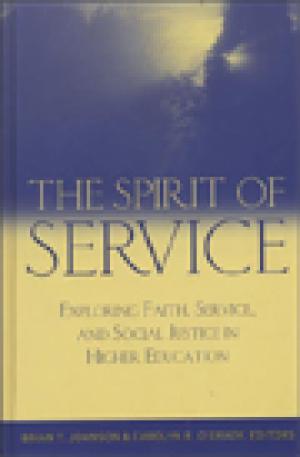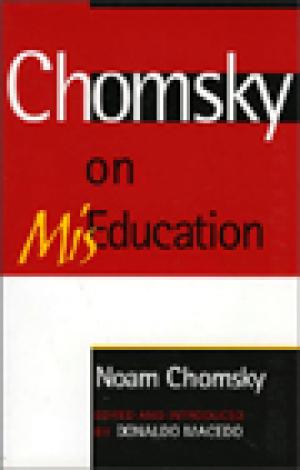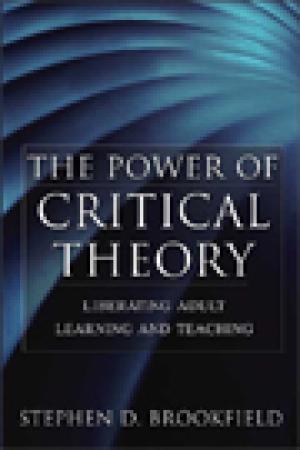Resources

In The Spirit of Service , the contributing authors explore the intersection of faith, service, and social justice in higher education. Reflecting upon the role that higher education plays in preparing future generations of citizens and leaders, this book asserts that spirituality and values necessarily involve one's person—and that educators must begin to connect student learning with the human experiences of faith, service, and commitment to social justice. Each of the authors describes a teaching experience in order to critically reflect upon the divide in academic culture between responsible, rigorous, intellectual competence and personal values. The authors' lessons in success and failure are meant to provide guidance for all institutions that are committed to preparing young students to lead lives of leadership and civic engagement. Divided into three parts, this book: * Explores the meaning, practice, and implications of religions or spiritually motivated service * Offers specific examples from faculty for integrating faith or spiritual perspectives with service, including what has worked and what dilemmas remain * Focuses on specific dilemmas and implications for engaging in service for social justice Containing a wealth of practical suggestions and strategies, The Spirit of Service represents a conversation in progress; it is an attempt to understand how to help undergraduates integrate service and spirituality for the purpose of social justice. (From the Publisher)
This article presents a methodology for a feminist theology of education based on reflection of women's educational experience in light of historical and contemporary theological works, especially the writing of Julian of Norwich. It argues for hospitality as a metaphor for theological education and suggests an understanding of the student, teacher, and environment of education that can create hospitality in the classroom.
The author describes the risks and rewards of her use of liberatory pedagogies in a "Feminist and Womanist Ethics and Spirituality" course. In addition to defining liberation pedagogies and providing a brief bibliography, she includes classroom rules and the projects undertaken that contributed to the character and success of the course.
In "Private Irony and Liberal Hope," Richard Rorty points out that redescribing people often humiliates them. Yet unless religious studies courses suppress the importance of the questions they raise, it seems that they directly or indirectly redescribe the students who take them. Hence the dilemma: do we eschew redescription at the price of a weak treatment of our subject, or do we practice redescription at the risk of humiliating our students? This paper reviews five strategies that do not solve the dilemma, then offers a sixth that does – by developing the distinction between proposing descriptions and imposing them.
This article re-examines so-called "experiential approaches" to theology and religious studies. In affirming the need of the educator to attend to both cognitive and affective aspects within teaching and learning, and in using many concrete examples from classroom practice, the article critically engages with Latin American liberation theology and post-liberalism in an attempt to clarify what "experience" is being referenced when "experiential methods" are used. The importance of the concrete worlds of individual students, the responsibility of educators to be conscious of their own power in shaping the educational experience, and the desirability of attending to issues surrounding economic disadvantage within theology and religious studies feature prominently in the study. We conclude that, though no experience is neutral, educational contexts in theology and religious studies can offer exemplary settings for profound self-discovery, exploration, and personal development through the "hermeneutical friction" created by critical examination of the narrative worlds within which we live.
In view of the current attention being given to "practices," this paper argues that Mortimer Adler and Paulo Freire have developed pedagogical practices that are relevant for the task of teaching theology in a democracy. Emphasizing the connection between education and democratic life, both reject a facile relativism or pragmatism, on the one hand, and an uncritical adherence to either a traditionalist or revolutionary agenda, on the other. Indeed, both present their pedagogies not simply as a means for advocating certain types of religious and ethical practice (whether traditional or revolutionary) but as a means for critically examining those practices in light of the truth and justice – and for believers, the reality of God – they presuppose. This essay examines precisely how they do this and what their relevance might be for the teaching of theology in a democracy where the co-existence of competing religious and ethical claims is a given.
This paper reports on a project undertaken as part of a wider group exploration of feminist pedagogy. It reflects on the issues this raised in teaching a course on contemporary biblical criticisms, an area of biblical studies where questions of power and ideology are frequently asked of texts. The project therefore asked the question whether there was a match or mismatch between the teaching process and the content of the course. Of particular concern was the understanding of the role of the teacher, the lecturer's 'what am I doing in this class?' question. The move to open up the student space led to the matter of boundaries. Who decides upon and regulates the limits of what can be discussed? What allows trust in a class and how does one deal with feelings and emotions? This paper engages the class members on all these issues, drawing on their comments gained from the questionnaire that was part of the project design.
An increasing number of female students populate preaching classes in seminaries and theological schools across the United States. Based on the analysis of female students' needs and demands in preaching courses, I propose a pedagogy for conversational learning to teach homiletics. My own teaching experience and the knowledge gained through conversations with other feminist educators and homileticians are major resources upon which the principles and strategies of conversational learning are drawn. The ultimate goal for conversational learning is to enable "transformative learning" through which students transform their sense of identity, worldviews, values, ways of thinking, and enhance their unique voices in the pulpit. For this purpose, conversational learning employs student-centered, group-oriented, and inductive approaches in an egalitarian learning environment. Conversational learning is an on-going process of learning preaching in a collaborative way.

In Chomsky on MisEducation, Noam Chomsky builds a larger understanding of our educational needs, starting with the changing role of schools today, and then broadening our view toward new models of public education for citizenship. Chomsky weaves global technological change and the primacy of responsible media with the democratic role of schools and higher education. A truly democratic society, he argues, cannot thrive in a rapidly changing world unless our approach to education - formal and otherwise - is dramatically reformed." "Chomsky's critique of how our current educational system "miseducates" students - and his prescriptions for change - are essential reading for teachers, parents, school administrators, activists, and anyone concerned about the future. (From the Publisher)

The Power of Critical Theory makes a powerful case for how the work of leading critical theorists can help adult educators and learners make sense of the pressing dilemmas, contradictions and frustrations they experience in their work. Stephen Brookfield guides the readers through a number of concepts and the theorists most identified with each concept. He also examines critical theory from writers who critique the theories using the lenses of gender and race. (From the Publisher)